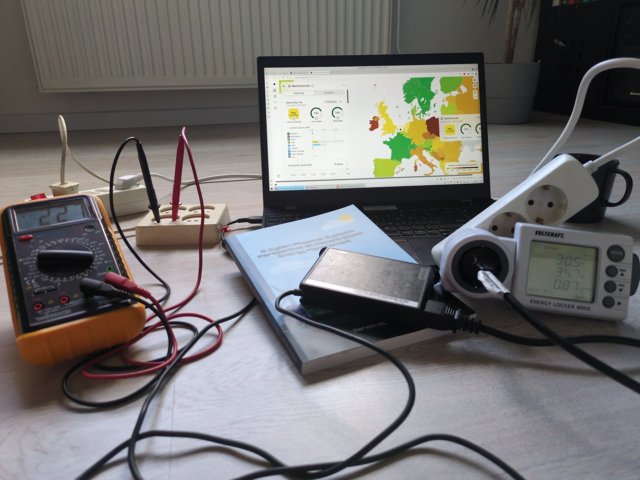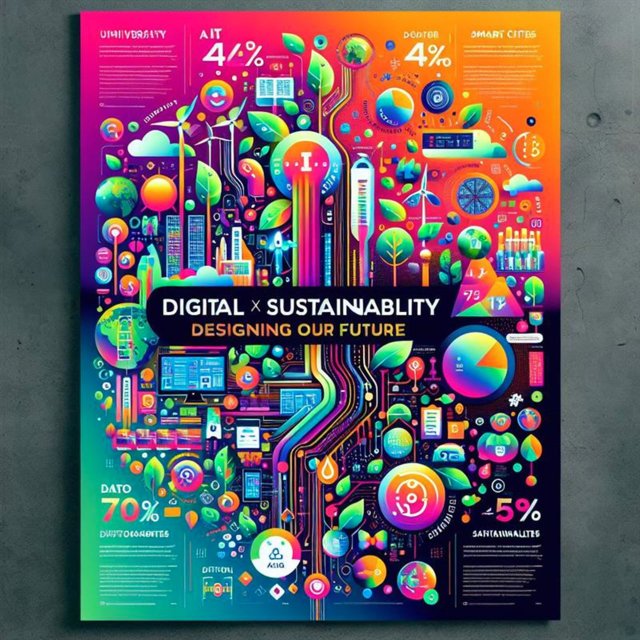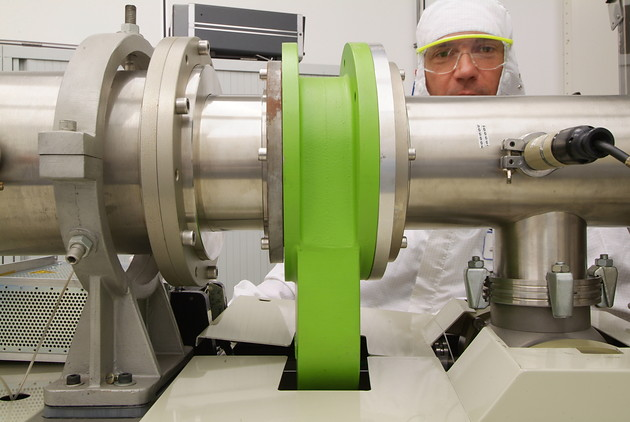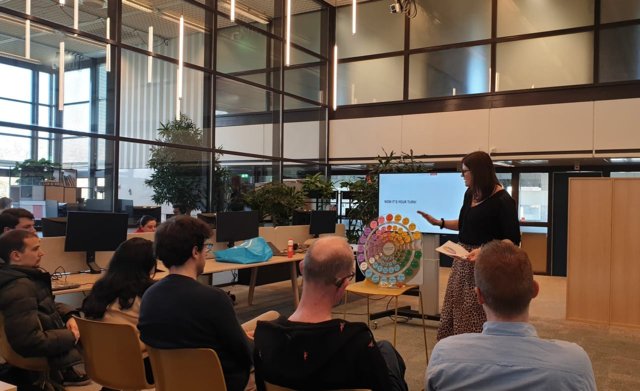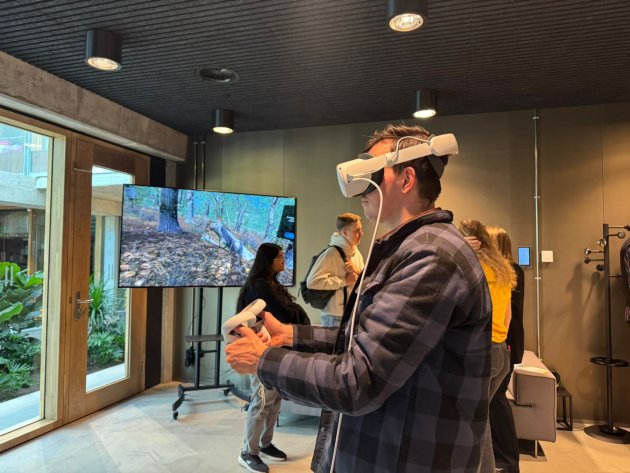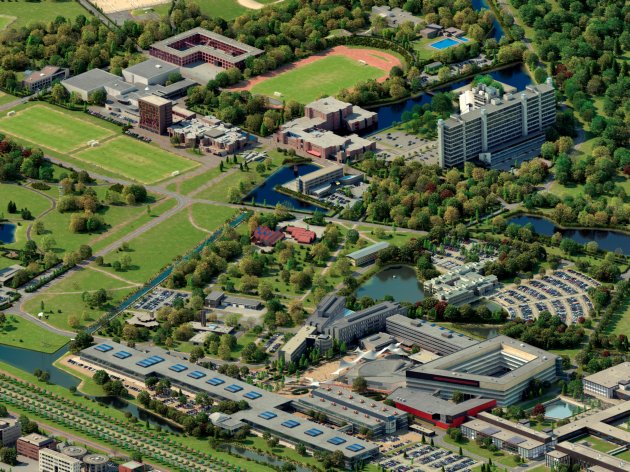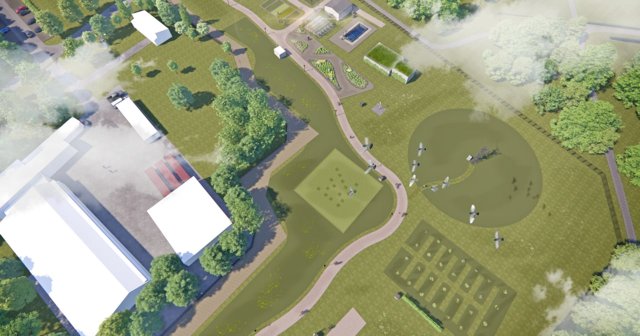showcase overview
Welcome to the Lifeline Programme of CurioCities! This page is exclusively for CurioCities participants. Here, you can indicate your preferences for the showcases you would like to attend.
In the afternoon of June 24th, you will join a maximum of three showcases connected to the University of Twente’s key impact domains: Safety, Health, Climate, and Chip Technology. You can choose three sessions that focuses on either one single domain or make a mix (for example: Hour 1 – Health, Hour 2 – Climate, Hour 3 – Chip Technology).
These sessions are led by lecturers, teachers, and researchers from the University of Twente. They are eager to share their ongoing projects and show you how their work connects to the broader societal challenges you will be addressing during CurioCities. Just before the Lifeline Programme starts, on the 24th of June, you will receive your final schedule for the afternoon. We try to distribute the groups as evenly as possible.
Scroll down to explore the available showcases and submit your preferences at the bottom of the page.
Time block 1: 13:15 - 14:15 (CEST)
CHIPS4CLIMATE: HOW MUCH CO2 DOES YOUR LAPTOP CONSUME?
Location: Connect, DesignLab
To make our world sustainable, we need to change the way we use our electricity. From a system where electricity is always available, we now need to rethink this and instead start using electricity when it is sustainably generated using e.g. wind turbines or solar panels. In order to do so, chips and algorithms can help how we deal with electricity and how devices will not overload the electricity grid. In this presentation we will together explore how algorithms and chips can help to combat climate change by more efficiently utilising renewable energy. Resources will be provided for you to further explore and how you can contribute yourself, to also get insight into how such systems affect the end-users.
Code green: Building a Digitally Sustainable Future of Tomorrow
Location: Inform, DesignLab
How might we use the power of digitalisation to accelerate sustainability without compromising one for the other? In a world facing urgent environmental challenges, the integration of smart technologies and sustainable design is more critical than ever. Digitalisation refers to the use of digital tools and data-driven solutions to improve systems, while sustainability ensures these systems support long-term ecological balance. This case invites participants into a design thinking journey to explore how both fields can reinforce each other rather than compete. Through hands-on collaboration, participants reflect on the potential of digital tools to support circular practices . Experiencing this high-tech and human touch, offers a unique opportunity to innovate responsibly and rethink how we shape our cities and societies.
nano fabrication technology: chips and beyond!
Location: Nanolab
Being able to fabricate electronic devices like advanced computer chips, to sensors to filters, opens a range of applications to make life easier. The applications include quantum computers, dust repelling fabrics, a lab on a chip, to being able to get a medical diagnosis within minutes using only nanoliters. Circular practices can use micro- or nano-devices to measure, but also filter it, for example.
In this interactive presentation we will discuss how we can use technology to design solutions for the world around us. Why not re-design “beer-filters” with nanopores into filters, that can catch PFAS or other microplastics? Can we filter out useful materials from waste water, gas outlets of our nano laboratories, or harvest precious metals from e-waste? After the interactive session there will be a short tour along the Nanolab of the UT.
Time block 2: 14:30 - 15:30 (CEST)
wheel of privileges: tell me where you are born, and i will tell you how long you will live.
Location: Learn-X, DesignLab
The place in which you are born can determine your lifespan. What does it mean to have equal access to care? How can citizens be involved in the design of health and care systems that support them in monitoring their health, fostering wellbeing and healthy lifestyle interventions? In this interactive session we will talk about aspects of Diversity, Equity and Inclusion, but also about participatory design methods based on social justice to inform the development of technological interventions.
This workshops will provide inisghts on the transdisciplinary way of working of the HCD group of the ET faculty, the Responsible Futuring approach of DesignLab and the combination of medical knowledge with technical application from TechMed Centre and the Tech 4 Women’s Health research group.
step into nature: virtually!
Location: Inspire, DesignLab
Discover Virtual Nature, software developed by the BMS Lab that lets researchers build immersive natural environments to explore how virtual worlds impact well-being, social connection, and more. Think lush forests, calming rivers, and peaceful birdsong - all customisable with visuals, sound and music.
In this demo, you will hear more about this software and its use, but you will also get to experience an environment like this in virtual reality. Curious about a walk in a virtual park? Come and find out!
sustainability walk: discover sustainable measures on the green campus of ut!
Location: On campus (outdoors)
At the University of Twente, various initiatives have contributed to our shared goal of having a sustainable campus. All around on campus, you can find special spots and initiatives that contribute to achieving these goals. To highlight some of these initiatives, the SEE-programme created the Sustainability Walk: a walking route on UT's beautiful green campus that lets you explore what we do to become a sustainable organisation.
Come see for yourself and explore the best sustainable solutions UT has to offer while walking around our beautiful campus.
This walk is offered by the Campus & Facility Management (CFM) at UT.
Time block 3: 15:45 - 16:45 (CEST)
From Ego to Eco: Rethinking Circularity Through Perspective
Location: The BMS Lab
How might perspective-taking help bridge the gap between diverse stakeholders in the urgent global shift toward a circular economy? In a world where collaboration across sectors is essential for systemic change, perspective-taking - the ability to see through the eyes of others - is a critical yet often overlooked skill. This interactive presentation invites participants to explore real-world tensions in circular transitions and experiment with tools that foster empathy and shared understanding. Through collaborative activities, participants are inspired to reflect on the social dynamics behind circular design challenges and consider how these insights can be applied to broader CurioCities goals: boosting circular practices in public space. At a tech-forward institution like the University of Twente, this session uniquely combines behavioral insight, design thinking, and systems thinking - empowering participants to approach circularity not only as a technical issue, but a deeply human one.
LAUNCHING UT.FIELDLAB: THE OUTDOOR SITE FOR CLIMATE, URBAN, BIODIVERSITY AND EARTH STRUCTURES RESEARCH
Location: UT.Fieldlab
In the Academic year ‘25/’26, the University of Twente will open their latest venue: UT Fieldlab.
The outdoor observatory and experimental site hosts more than 15 experiments from various faculties, focusing on Water Cycle and Climate, Earth Structures and Dynamics, Biodiversity of Food Security, and Urban (Infra)Structures. CuriouCities’ participants are offered a sneak peek to this site, before its official opening. Join this trip if you are wondering how climate phenomena are monitored on campus, how we investigate the physics behind coastal defence and wind-sand interaction, whether we can detect unknown and unseen buried urban infrastructures, or how we observe vegetation growth using remote sensing. A guided tour by representatives of the UT.Fieldlab daily board will show you the various experimental grounds – some in action, some under construction, and invites you for a discussion on how these experiments serve the citizen communities, academic groups, and served societal development goals.
NANO FABRICATION TECHNOLOGY: CHIPS AND BEYOND!
Location: Nanolab
Being able to fabricate electronic devices like advanced computer chips, to sensors to filters, opens a range of applications to make life easier. The applications include quantum computers, dust repelling fabrics, a lab on a chip, to being able to get a medical diagnosis within minutes using only nanoliters. Circular practices can use micro- or nano-devices to measure, but also filter it, for example.
In this interactive presentation we will discuss how we can use technology to design solutions for the world around us. Why not re-design “beer-filters” with nanopores into filters, that can catch PFAS or other microplastics? Can we filter out useful materials from waste water, gas outlets of our nano laboratories, or harvest precious metals from e-waste? After the interactive session there will be a short tour along the Nanolab of the UT.

